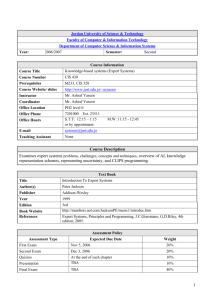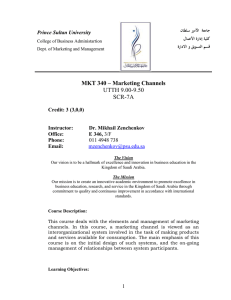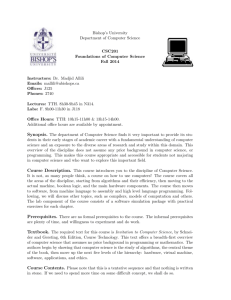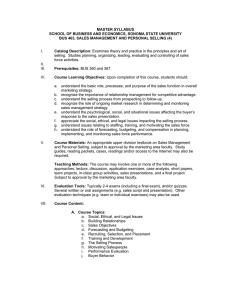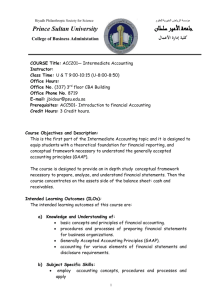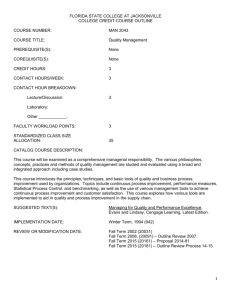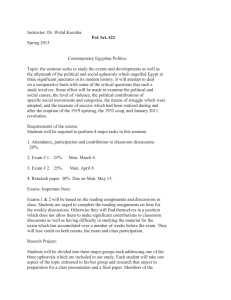BUS 368 - International Marketing
advertisement
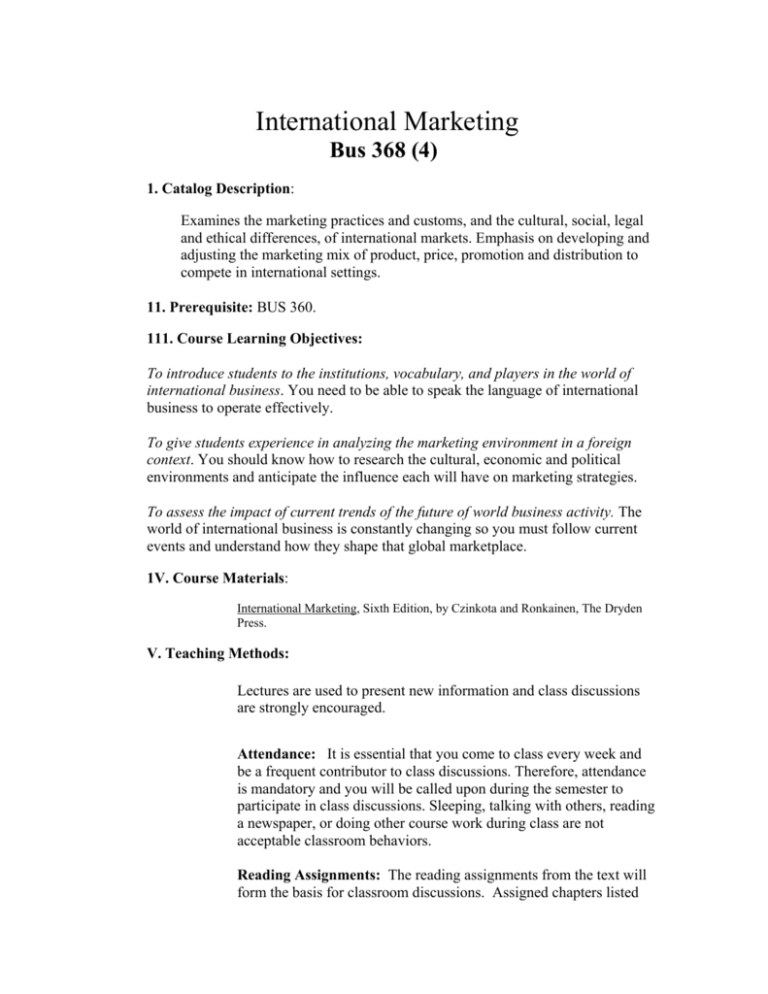
International Marketing Bus 368 (4) 1. Catalog Description: Examines the marketing practices and customs, and the cultural, social, legal and ethical differences, of international markets. Emphasis on developing and adjusting the marketing mix of product, price, promotion and distribution to compete in international settings. 11. Prerequisite: BUS 360. 111. Course Learning Objectives: To introduce students to the institutions, vocabulary, and players in the world of international business. You need to be able to speak the language of international business to operate effectively. To give students experience in analyzing the marketing environment in a foreign context. You should know how to research the cultural, economic and political environments and anticipate the influence each will have on marketing strategies. To assess the impact of current trends of the future of world business activity. The world of international business is constantly changing so you must follow current events and understand how they shape that global marketplace. 1V. Course Materials: International Marketing, Sixth Edition, by Czinkota and Ronkainen, The Dryden Press. V. Teaching Methods: Lectures are used to present new information and class discussions are strongly encouraged. Attendance: It is essential that you come to class every week and be a frequent contributor to class discussions. Therefore, attendance is mandatory and you will be called upon during the semester to participate in class discussions. Sleeping, talking with others, reading a newspaper, or doing other course work during class are not acceptable classroom behaviors. Reading Assignments: The reading assignments from the text will form the basis for classroom discussions. Assigned chapters listed on the course calendar are to be covered before coming to class. Students are also encouraged to bring outside current event articles to class for discussion purposes. Written Assignments: Students must complete two written case assignments. The first report will be the investigation of the cultural environment of a country. The second report will require you to conduct an economic analysis and to research a nation’s political environment. V1. Evaluation There will be a midterm and a final exam. The final exam is not comprehensive but covers the material covered after the midterm. The purpose of the exams is to provide a measure of your knowledge of the terminology, concepts, and application of the material covered in the textbook and lectures. Each exam is worth 100 points. Both exams will have two sections. The first section will be 10 short answer questions covering terms and concepts covered in the text and in class. The first section will be worth 50 points. The second section will be 5 short essay questions focusing on the application of concepts. The second section will also be worth 50 points. V11. Course Content. Introduction to Global Marketing The Cultural Environment Culture and Marketing Communications Consumer Behavior Across Cultures Marketing Research Global Advertising Locating Foreign Distributors Exporting Procedures Analysis of the Economic Environment Political and Legal Environment Marketing, the WTO and Barriers to Trade Interdisciplinary Content: International/Glo bal Ethical Issues Political Issues Social Issues Legal/Regulatory Issues Environmental Issues Minimum Number of 50 Minute Periods Devoted to Topic 12 Required Graded Work Other Than Exams? * 1 1 1 .5 * * * * .5 * Technology Issues Demographic Diversity .5 * 1 * *Required graded work other than exams, will be at the discretion of the instructor. Interdisciplinary Skills: Oral Communication Written Communication Critical Thinking Working in Teams Required Graded Work Other Than Exams? Yes Yes Yes No NOTE: The teaching method and evaluation tools used by the faculty member will influence the amount of time devoted to each of these skills. Marketing plans, case analysis, and/or assignments are used to assess student’s written communication

